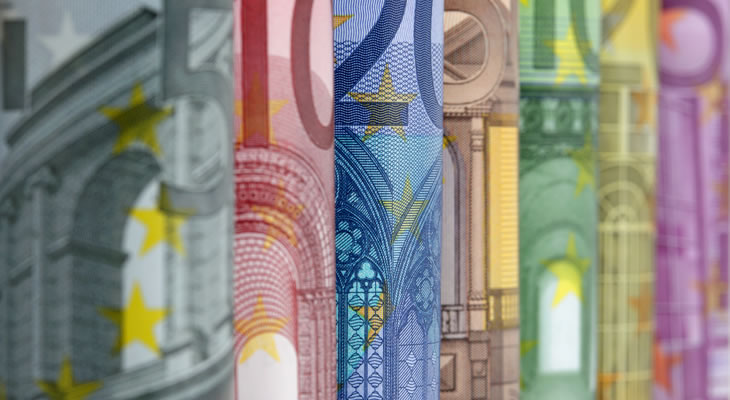- Pound slumped in response to EU referendum result – EUR/GBP exchange rate strengthened by Brexit vote
- Worries rose over impact of a UK exit on the wider Union – Eurozone economy expected to see slowdown in response
- Failure to promptly trigger Article 50 increased uncertainty – Sterling struggled to recover ground amidst continued market worries
- Euro forecast to make further gains against Pound – Commentary from ECB unlikely to undermine appeal of single currency
With markets still processing the outcome of last week’s EU referendum, the EUR/GBP exchange rate surged back to a two-year high of 0.83, in spite of supposedly reassuring words from Chancellor of the Exchequer George Osborne.
EUR/GBP Exchange Rate Leaped after Surprise EU Referendum Result
Investors were generally taken by surprise last week when the UK voted narrowly in favour of leaving the EU, a result that had been largely dismissed in the days ahead of the vote thanks to a number of ‘Remain’ supportive opinion polls. This surprise outcome saw the Pound (GBP) weaken sharply across the board, plunging to multi-year lows against many of its rivals. As the vote for a Brexit raises the possibility of years of economic uncertainty the appeal of Sterling was substantially undermined, given that the vast majority of economic experts had warned against such an eventuality.
Although Eurozone data was generally disappointing ahead of the weekend this was eclipsed by the fallout of the Brexit vote. However, the raft of weaker Manufacturing, Services, and Composite PMIs pointed towards continued slowdown pressure within the currency union. With the first quarter French GDP also being revised lower on Friday the signs would seem to suggest that the domestic economy is ill-equipped to deal with the volatility stemming from a Brexit. As researchers at Goldman Sachs noted:
‘The UK’s exit from the EU comes on top of a subdued recovery in large parts of Europe, yet controversy in Germany over ECB activism to support that recovery, and a European refugee crisis. These challenges expose political tensions within and between countries. Europe has not resolved the tension that exists between a need to integrate in order to underpin a more workable monetary union and its reluctance to relinquish national sovereignty. Euro-sceptic elements will be emboldened by the UK’s decision to leave the EU.’
Further Uncertainty Provoked by Brexit Hesitation, Pound (GBP) Extended Slide
While commentary from Bank of England (BoE) Governor Mark Carney had helped to shore up the Pound somewhat ahead of the weekend the same could not be said for the latest words from Chancellor of the Exchequer George Osborne. In his first appearance since the referendum result, Osborne strived on Monday to keep markets in a state of relative calm, although investors were more concerned by his reiteration that Article 50 does not need to be immediately invoked. As it looks likely that uncertainty will continue for some time to come there was little reason to favour the Pound at the start of the week, allowing the Euro to Pound (EUR/GBP) exchange rate to extend its gains further.
Kit Juckes, Research Analyst at Societe Generale, commented:
‘The Government is in limbo ahead of a Conservative Party leadership contest. The opposition is in chaos. The rest of the EU would like negotiations on the UK’s exit to begin but they have no-one to negotiate with. Uncertainty is negative for the UK economy, for investor confidence and obviously, for the Pound.’
Demand for the Euro was further encouraged by a stronger-than-expected Eurozone M3 Money Supply reading for May, as the measure rose from 4.6% to 4.9%. A larger monetary supply would seem to point towards an increase in domestic inflationary pressure, something which the European Central Bank (ECB) could view positively. However, the chances of the ECB undertaking further easing measures seem to be rather higher in the wake of the EU referendum, with the single currency bolstered by safe-haven demand.
EUR/GBP Exchange Rate Forecast: Brexit Impact to Dominate Outlook of Pound
Naturally the fallout from Brexit is likely to remain the predominant influence on the EUR/GBP exchange rate over the coming week, and beyond. As EU leaders push for the UK to activate Article 50 as soon as possible so that negotiations can get underway, investor agitation is unlikely to ease. The longer that the government puts off pulling the trigger the greater the uncertainty hanging over markets will become. Rumbles of discontent within the UK are also expected to stoke volatility further.
Some of the confidence could leave the Euro, though, when ECB President Mario Draghi speaks on Tuesday morning. If the policymaker fails to convince traders that additional policy easing is not imminent then the appeal of the single currency could be muted. Worries over the implications of a Brexit for the Eurozone, particularly as an economic slowdown could jeopardise the Greek recovery, could also weigh on the EUR/GBP exchange rate.
Current EUR, GBP Exchange Rates
At the time of writing, the Euro to Pound (EUR/GBP) exchange rate was trending higher in the region of 0.8321, while the Pound to Euro (GBP/EUR) pairing was slumped around 1.2015.


Comments are closed.